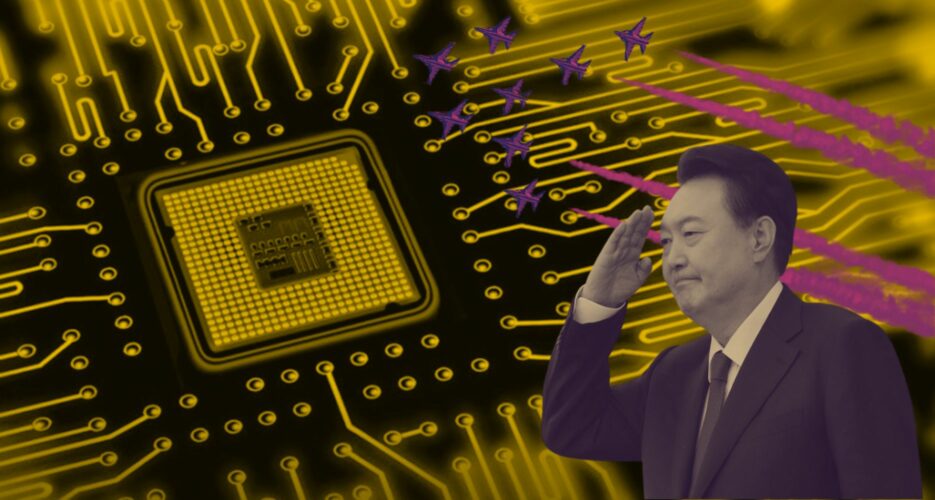DAPA’s strategy to achieve military-grade chip independence by 2030 tackles security risks and global supply chain gaps
A collage of a semiconductor chip, ROK Air Force's Black Eagles and South Korean President Yoon Suk-yeol | Images: ROK Defense Acquisition Program Administration via Naver blog, Korea Pro, ROK Presidential Office, edited by Korea Pro
South Korea’s Defense Acquisition Program Administration (DAPA) unveiled on Tuesday a comprehensive strategy to reduce the military’s reliance on foreign semiconductors. By 2030, the agency aims to establish the nation as a self-reliant producer of military-grade chips, addressing a critical vulnerability in its defense supply chain.
Despite being a global semiconductor powerhouse and its emergence as a major defense exporter, the nation depends almost entirely on imported chips to power advanced weapons systems, from fighter jets to unmanned drones.
South Korea’s Defense Acquisition Program Administration (DAPA) unveiled on Tuesday a comprehensive strategy to reduce the military’s reliance on foreign semiconductors. By 2030, the agency aims to establish the nation as a self-reliant producer of military-grade chips, addressing a critical vulnerability in its defense supply chain.
Despite being a global semiconductor powerhouse and its emergence as a major defense exporter, the nation depends almost entirely on imported chips to power advanced weapons systems, from fighter jets to unmanned drones.
Get your
KoreaPro
subscription today!
Unlock article access by becoming a KOREA PRO member today!
Unlock your access
to all our features.
Standard Annual plan includes:
-
Receive full archive access, full suite of newsletter products
-
Month in Review via email and the KOREA PRO website
-
Exclusive invites and priority access to member events
-
One year of access to NK News and NK News podcast
There are three plans available:
Lite, Standard and
Premium.
Explore which would be
the best one for you.
Explore membership options
© Korea Risk Group. All rights reserved.
No part of this content may be reproduced, distributed, or used for
commercial purposes without prior written permission from Korea Risk
Group.












